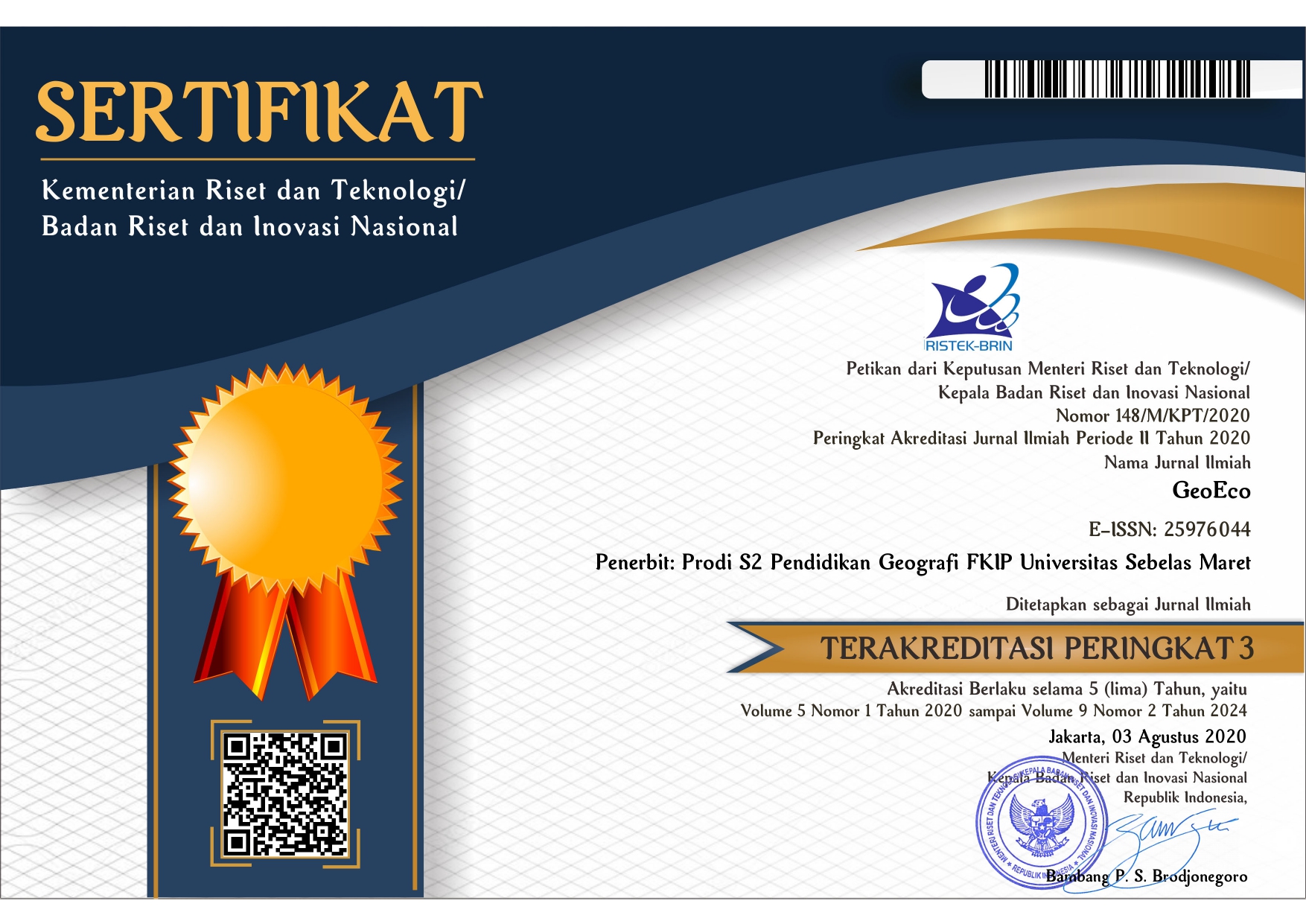DEVELOPMENT OF SUSTAINABLE TOURISM INSTRUMENTS FOR ECOLOGICAL RESILIENCE IN PARI ISLAND, DKI JAKARTA
Abstract
The research objective is to develop an instrument for assessing sustainable tourism in the context of ecological resilience in Pari Island, DKI Jakarta. This study uses research and development methods through the ADDIE model approach. The research sample includes potential and factual coral reef areas for tourism in Pari Island. The results of the study concluded that the validation of important instruments includes: (1) natural/biological criteria, namely unique and beautiful coral reefs, quite unique tidal phenomena, endemic flora and fauna such as seagrass and fish habitat, as well as other aquatic biota, ease of observing aquatic biota, opportunities for trekking, snorkeling, etc. as well as the support of comfortable temperature and humidity, normal rainfall conditions, as well as well-managed household industrial waste; and (2) Physical environmental criteria such as dominant beaches, controlled coastal land conversion rate and protected from pollution, ease of utilizing rocky beaches for friendly productive activities. The environment, such as maintaining fish, marine tourism, and others as well as the existence of a map of the distribution of coral reefs that accurately depicts local potential as well as information related to the low risk of natural disasters (landslides, floods, tsunamis).
Keywords
Full Text:
PDFReferences
A. J. Cote, M., & Nightingale. (2012). Resilience thinking meets social theory: Situating social change in socio-ecological systems (SES) research. Prog. Hum. Geogr., 36, 475–489. doi:10.1177/0309132511425708
Elizabeth Shove. (2010). Social Theory and Climate Change. Theory, Cult. Soc., 27, 2–3. doi:10.1177/0263276410361498
John Urry. (2010) Consuming the Planet to Excess. Theory, Cult. Soc., 27, 2–3. doi: 10.1177/0263276409355999
Raymond Boudon. (1986). Theories of Social Change A Critical Appraisal. University of California Press 1986.
W. Neil Adger. (2000). Social and ecological resilience: are they related?, Prog. Hum. Geogr., 24, 3, doi: 10.1191/030913200701540465
Wallace Hannum. (2005). Instructional Systems Development: A 30 Year Retrospective, JSTOR, 45, 4, 5–215
Göran Wall. (2002). Introduction to Life Support System and Sustainable Development. ,” ResearchGate. https://www.researchgate.net/publication/242284315_INTRODUCTION_TO_LIFE_SUPPORT_SYSTEMS_AND_SUSTAINABLE_DEVELOPMENT
Iosef I. Gitelsona and G. M. Lisovskya. (2008). Creation of Closed Ecological Life Support Systems: Results, Critical Problems and Potentials. J. Sib. Fed. Univ., 1, 19–39
S. Samadi, S. Suhardjo, and Aris Munandar. (2012). An Environmental Monitoring System for The Availability of Drinking Water for The Population as an Ecosystem ervice in Areas Exposed to Covid-19. Paper presented at the International Conference on Disaster Management and Climate Change. p. 7.
United States: Wadsworth Cengage Learning.
Davenport, T. H. (2000). Mission Critical : Realizing the Promise of Enterprise Systems. Boston , Massachusetts: Harvard Business School Press.
Pfeffer, J., & Salancik, G. R. (1978). Social Control Of Organizations. In J. Greenman (Ed.), The External Control of Organizations : A Resource Dependence Perspective (pp. 39-61). New York: Harper & Row, Publishers, Inc.
Wimmer, R. D., & Dominick, J. R. (1994). Content Analysis. Belmont, California: Wadsworth Publishing Co 1994.
Refbacks
- There are currently no refbacks.












.png)

